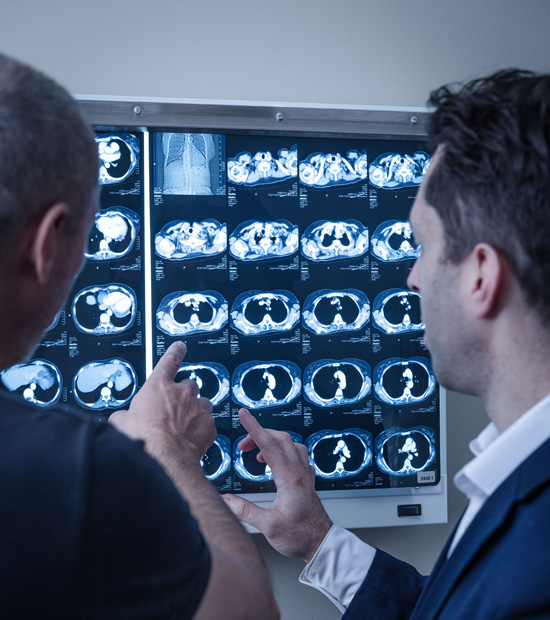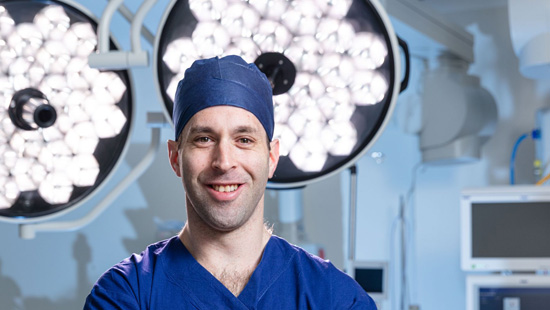Adrenal Surgery Specialist in Sydney
What are the adrenal glands?
The adrenal glands are small, triangular-shaped glands located on top of both kidneys. Adrenal glands produce hormones that help regulate metabolism, blood pressure, salt and water balance, response to stress, and other essential functions. Adrenal glands are composed of two parts – the cortex and the medulla – each responsible for producing different hormones. Adrenal glands may develop nodules that can be benign or malignant, which can potentially produce excessive amounts of certain hormones leading to various health problems.
What is an adrenal incidentaloma?
An adrenal incidentaloma is an nodule in the adrenal gland that is identified during imaging or scans that have been performed for other reasons. Most adrenal incidentalomas are benign, not producting excessive hormones and can be simply monitored. Further tests including blood and urine studies, and sometimes other imaging scans, are usually required to completely assess the nature of an adrenal incidentaloma.


What will happen during my consultation for my adrenal problem?
Your consultation will begin with a careful history and physical examination, followed by review of your results including blood tests and scans. Further investigations including blood and urine tests, and additional scans, may be recommended. It is very rare to request an outpatient adrenal biopsy. Treatment options will then be discussed and you will have the opportunity to ask questions in order to make the best decisions for your care.
Why is adrenalectomy performed?
Adrenalectomy is generally recommended for two reasons:
- adrenal lesions which are large or have other features which increase the risk of an adrenal cancer
- adrenal lesions that are overproducing particular hormones (‘functioning adenoma’) with resulting detrimental health impact
We participate in the joint Liverpool and Campbelltown Endocrine Surgical multidisciplinary team (MDT) meeting, in which a panel of experts from different specialities review cases of patients who are under consideration for adrenalectomy. Our participation with this MDT is a key component of best practice and high quality of care when assessing and making recommendations for patients with adrenal problems.
How is adrenalectomy performed?
Adrenalectomy can be performed either with open surgery or via keyhole techniques. Various keyhole techniques can be performed including anteriorly through the abdominal cavity, or posteriorly where the patient is positioned face-down, and the instruments are placed on the back under the rib-cage. The recommendation for which technique is appropriate depends on many factors and will be discussed in detail during the consultation.

Are there possible complications from adrenalectomy?
Most patients undergoing adrenalectomy do not have significant problems with the surgery. The risk of complications depends on the type and nature of the adrenal mass, the surgical technique (open versus keyhole), as well as underlying health status. There are risks associated with general anaesthesia (e.g. cardiac and breathing problems), bleeding and infection. Some patients booked in for keyhole surgery will require conversion to open surgery during the operation. There is also a risk of adrenal insufficiency if the other remaining adrenal gland is not working properly and this might require medical treatment. Further specific aspects and risks may differ based on many factors, and will be discussed in detail during the consultation.
What is the recovery like after adrenalectomy?
Recovery after surgery varies widely depending on underlying health status, the nature of the adrenal problem, and whether the surgery has been performed open or keyhole. Your particular circumstances with regard to recovery and return to work will be discussed in detail during the consultation.




